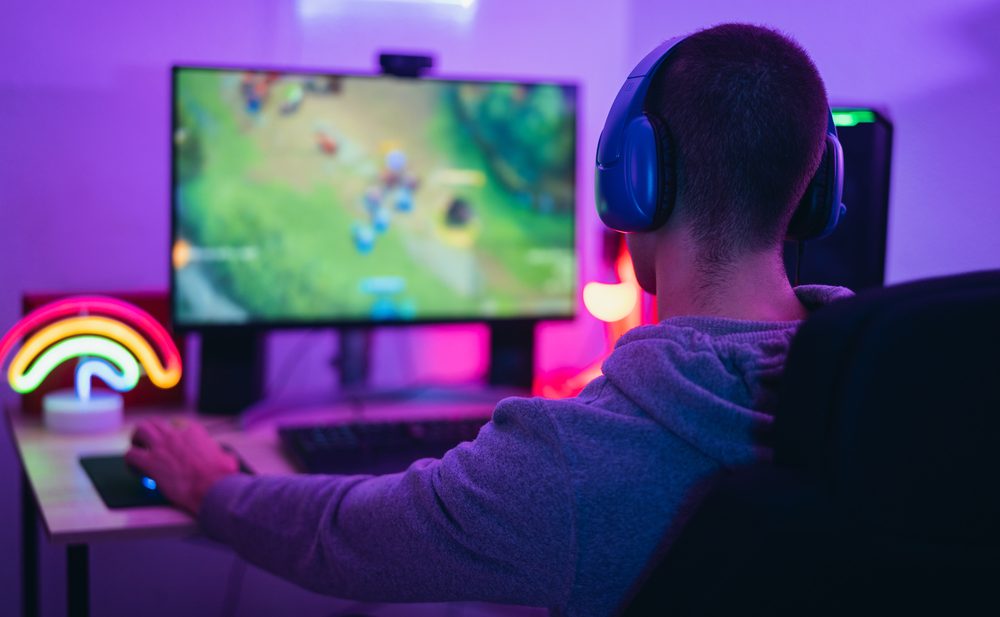- May 20, 2023
- by Shalini Murmu
- Addiction
In recent years, the world has witnessed a remarkable rise in the popularity of video games. With immersive graphics, captivating storylines, and online multiplayer features, gaming has evolved into a mainstream form of entertainment amongst children and young adults. However, alongside this exponential growth, concerns have been raised about the potential negative impacts of excessive gaming. In a ground-breaking conclusion, the World Health Organization (WHO) officially recognized video game addiction as a mental health disorder.
This announcement has sparked widespread discussion and calls for a greater understanding of this complex issue. Given the technology advancing at an unprecedented pace, it’s crucial to address the impact of video games on mental well-being and promote a healthier gaming culture. In this blog, we will explore the recent recognition of video game addiction as a mental health disorder and its implications for people and society.
The Classification and its Significance
The World Health Organization (WHO) officially recognized gaming disorders in its International Classification of Diseases (ICD-11). This classification was determined after years of research and consultations with experts in the field. It is important to note that the recognition of gaming disorder does not imply that everyone who loves playing video games is addicted. However, it serves as a vital tool for identifying and assisting those whose gaming habits have crossed the line into harmful and obsessive behavior.
Understanding Video Game Addiction
Video game addiction involves excessive, uncontrolled gaming habits that persist despite negative consequences. It is a pattern of severe recurrent gaming behavior which takes precedence over other life interests. This can include things like neglecting work, school, or relationships in order to play video games. People with gaming disorder may also go through withdrawal symptoms when they try to quit playing, such as anxiety, irritability, and depression. Just like the other forms of addiction, it affects various aspects of an individual’s life, including physical health, mental well-being, relationships, and academic or professional performance. It is characterized by symptoms such as an uncontrollable urge to play games, neglecting personal responsibilities, losing interest in other activities, and withdrawal symptoms when prohibited from playing.
The Rise of Gaming Addiction
The rapid advancement of technology and the widespread availability of high-quality video games have fueled to the rise of video game addiction. The study also found an exponential increase in gaming addiction both during and after the pandemic. The immersive nature of modern games, coupled with social connectivity and the competitive aspects of online gaming, creates a potent environment that can captivate a person’s mind for hours on end. These games often provide instant joy and a sense of achievement, leading some to escape into a virtual world as a means to cope with real-life challenges.
Implications for People and Society
The recognition of video game addiction as a mental health disorder holds certain significant implications. First of all, it validates the experiences of those who have struggled with excessive gaming habits and opened doors with welcome hands to professional help and support. Like every addiction-related issue, people can seek specialized treatment and therapy that will address their unique needs, promoting a path toward recovery and well-being.
Secondly, this acknowledgment also raises awareness among the general public, parents, and teachers about the potential risks associated with exposure to excessive gaming. By understanding the signs of addiction, loved ones can intervene before the addiction has a hold over the person and provide the necessary support. Moreover, it urges developers and gaming companies to adopt responsible practices, including implementing features that encourage healthy gameplay and promote moderation.
The Role of Responsible Gaming
It is crucial to emphasize that not all gaming is bad for mental health. In fact, gaming can provide numerous benefits, from stress relief, cognitive stimulation, and social interaction to skill development. The trick is to have a responsible gaming attitude, where you engage in a balanced approach that considers your overall health.
Creating a Healthy Gaming Culture
As video games continue to grow in popularity and influence, cultivating a healthy gaming culture becomes imperative. This includes encouraging open discussions about gaming habits, educating your children about the signs of addiction, and encouraging moderation and self-awareness. By promoting a balanced lifestyle that incorporates various activities beyond gaming, one can have fulfillment and enjoyment in both virtual and real-world experiences.
Collaborative Care
However, addiction of any sort is a concerning issue and needs to be addressed with the right care and support. There is a wide range of treatment options that can ease the journey for you or a loved one.
NABHS emphasizes a collaborative approach to care, working closely with healthcare providers, community organizations, and other stakeholders to ensure holistic and integrated support. This team approach enhances the effectiveness of treatment and promotes continuity of care, improving long-term outcomes for people seeking recovery from addiction.
















